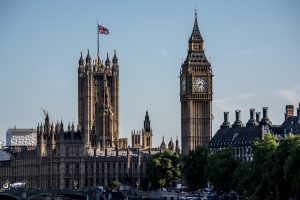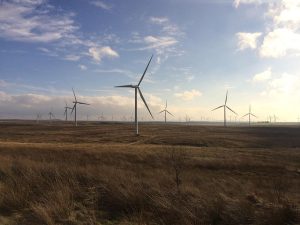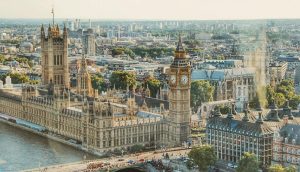As COP26 approaches, Brevia will be tracking the latest milestones in the UK’s preparations for the upcoming climate conference. This week’s developments cover the publication of the Transport Decarbonisation Plan, the COP26 Programme, along with the ESO’s 2021 Future Energy Scenarios.
1. Transport Decarbonisation Plan published
The Government has published its long-awaited Transport Decarbonisation Plan, setting out its strategy to tackle carbon emissions from the UK’s transport sector. Headline policies include ending the sale of new diesel and petrol heavy goods vehicles (HGVs) by 2040 (subject to consultation) as well mandatory EV quotas for manufacturers. [1]
The strategy also includes a number of ambitious new goals for aviation, including domestic flights becoming emissions free by 2040 and international aviation to be net zero by 2050.
The Government has also committed to electrify its own fleet of cars and vans by 2027.
Alongside this, the Government has published its response to the EV smart charging consultation, confirming that all new private EV charge points will need to meet smart charging standards.[2]
Whilst the Government’s commitments to consult on policies aimed at ‘greening’ transport have broadly been welcomed by industry, critics have pointed to the omission of any information on road pricing, as well as the touted frequent flyer tax.[3]
The Transport Decarbonisation Plan is the first in a raft of net-zero publications expected from the Government as it ramps up preparation ahead of the climate conference in Glasgow this November. The Government was expected to publish its much-anticipated Heat and Buildings Strategy ahead of the summer recess, however reports are increasingly suggesting this will yet again be delayed until the Autumn. [4] Other policies to look out for include the Hydrogen Strategy, as well as the BEIS Net Zero Strategy.
2. Government sets out Presidency programme for COP26
The UK Government has published the High-Level two week programme for the upcoming Climate Conference in November.[5]
The event will open with the World Leaders Summit on the 1 and 2 November. The following days will each focus on a specific theme, ranging from clean energy and decarbonising transport to the inclusivity of climate action. Each day will provide opportunities to showcase global action reflective of each day’s theme.
The formal negotiations will run alongside the Presidency programme and will focus on reaching agreement on the outstating aspects of the Paris Agreement.
There will also be separate space in the Blue and Green zones to allow for exhibitions and events showcasing the UK’s progress in tackling climate change.
Alongside this, the COP26 President has published a letter to the UNFCCC parties setting out the details of a face-to-face ministerial meeting to be hosted in July. The meeting will bring together representatives from nearly 50 countries to discuss expectations for November. The letter can be accessed here.
The COP26 Ministerial team also faced questions in Parliament this week, where the COP26 President, Alok Sharma MP, reiterated the UKs’ commitment to holding in-person negotiations. However, the COP26 team has yet to publish further details on a number of key aspects relating to the conference, including on health and safety and attendance requirements. Speaking in the Commons this week, the COP26 President stated that further details would be set out ‘very shortly.’[6]
3. Future Energy Scenarios 2021
The National Gird ESO has published its 2021 Future Energy Scenarios (FES), setting out four different pathways for the future of energy on the road to net-zero by 2050. [7]
Of note, all four of the 2021 FES have lower emissions by 2030 compared to the scenarios outlined in the 2020 FES. Three out of the four 2021 FES reach net-zero by 2050., with the fourth seeing a 73 per cent reduction in emissions by the middle of the century. Emissions from the power sector are net negative by 2034 in all net zero scenarios.
The most ambitious scenario, called Leading the Way, relies on a combination of high consumer engagement, along with investment in technological innovations which enable the country to reach net zero by 2047.
The theme of consumer engagement and the adoption of smart energy use runs throughout the report, along with holistic energy market reform. The report also emphasised the need for policy clarity on matters such as residential heating and transport decarbonisation, putting further pressure on the Government to publish its delayed Heat and Buildings Strategy.
BREVIA CONSULTING PROVIDES STRAIGHTFORWARD POLITICAL AND COMMUNICATIONS SUPPORT TO BUSINESSES AND ORGANISATIONS
Discover how Brevia can help you and your organisation by contacting the Brevia Energy Team on 020 7091 1650 or emailing us at: contact@brevia.co.uk
Notes
[1] Department for Transport, Government publishes world’s first ‘greenprint’ to decarbonise all modes of domestic transport by 2050, 14 July 2021, Link
[2] BEIS, Electric vehicle smart charging: final outcome, 15 July 2021, Link
[3] Roger Harrabin, BBC, Carry on flying, says government green plan, 14 July 2021, Link
[4] Sam Coates, Sky News, Climate change: Ministers abandon plans to set out low-carbon heating strategy before summer break following disagreements inside government, 15 July 2021, Link
[5] Department for Business, Energy and Industrial Strategy (BEIS), UK releases Presidency programme for major climate summit in Glasgow. 7 July 2021, Link
[6] The Rt Hon Alok Sharma MP, COP26 Oral Questions, 14 July 2021, Link
[7] National Grid ESO, Introducing our 2021 Future Energy Scenarios, 12 July 2021, Link



